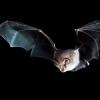This month's top tech news stories

Bit.Bio
Disease-relevant mutations
Bit.bio has launched its new Custom ioDisease Model Cells offering. It allows scientists to commission their disease-relevant mutation of interest in bit.bio’s human-induced pluripotent stem cell-derived cells. The disease-relevant mutation is engineered into bit.bio’s human ioWild Type cells using CRISPR/Cas9 gene editing. As disease model cells come from an identical human genetic background to ioWild Type cells, any experimental differences between the wild type and the disease model can be confidently attributed to the effects caused by the disease-specific mutations.
Thermo Fisher Scientific
Freelite and Hevylite assays
Thermo Fisher Scientific’s Freelite and Hevylite assays have been included in updated guidelines published by the Dutch Myeloma Working Group – part of the International Myeloma Working Group (IMWG) – for managing monoclonal gammopathies. Explicit mention of these assays adds to the weight of evidence provided by citations in more than 3800 publications and use in more than 1000 laboratories. The IMWG also used Freelite assays to establish the initial reference values for diagnosing and monitoring MGs with FLCs.
Automata
Lab automation
Automata has launched LINQ Cloud: cutting-edge laboratory automation software. LINQ Cloud connects a lab’s physical and digital environment together, enabling life science organisations to scale while reducing the manual workload for scientists. It works alongside Automata’s new LINQ automated lab bench, to create a lab automation solution specific to every lab’s workflow that enables true walkaway time. This means labs can reduce the manual workload for scientists – so they can spend more time on meaningful science. The software features an easy-to-use, intuitive interface.
Image Credit | bit.bio




